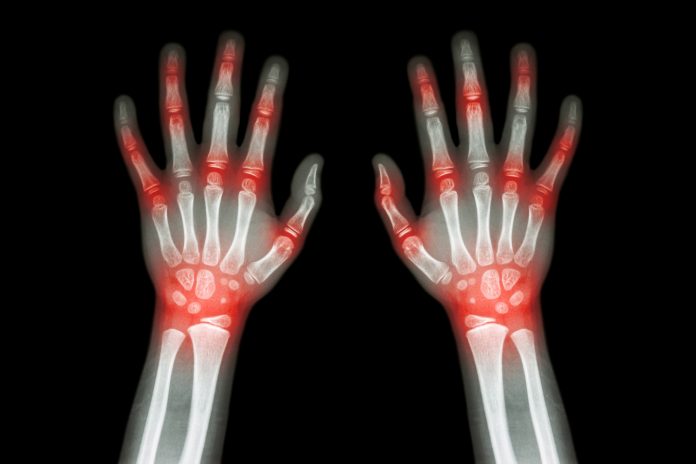A new study, led by researchers at Queen Mary University of London, uses novel biomarkers to predict patient responsiveness to rheumatoid arthritis treatment
Disease-modifying anti-rheumatic drugs (DMARDs) are commonly used to treat Rheumatoid Arthritis (RA) despite the fact that up to 50% of patients do not respond to the treatment.
Up until now, there has been no way to detect whether a patient will effectively respond to treatment prior to being prescribed the medication.
Now, a new study, published in the science journal Nature Communications, demonstrates that by measuring levels of certain small molecules produced from essential fatty acids in a patient’s blood that are involved in regulating inflammation (known as ‘specialised pro-resolving mediators’), predictions can be made about an individual’s ability to respond to these drugs.
Lead author Professor Jesmond Dalli from Queen Mary University of London said:
“Currently a large proportion of patients with RA are unresponsive to DMARDs and are therefore unnecessarily exposed to their side effects.
“In addition, it can currently take up to six months from treatment initiation to determine whether someone will or will not respond to these medicines.
“For the patients who do not respond to the treatment, the disease gets worse before they are able to find a treatment that is more likely to work for them.
“The research was conducted using blood from healthy RA patients who were both responsive and unresponsive to treatment. The blood was collected before treatment initiation or six months after treatment commenced.
“We then measured the levels of protective molecules using mass spectrometry-based methodologies that were coupled with artificial intelligence methodologies to identify molecules that can predict responses to treatment.”
The research was funded by the European Research Council, Wellcome Trust, the Royal Society, Versus Arthritis and Barts Charity.
Source











